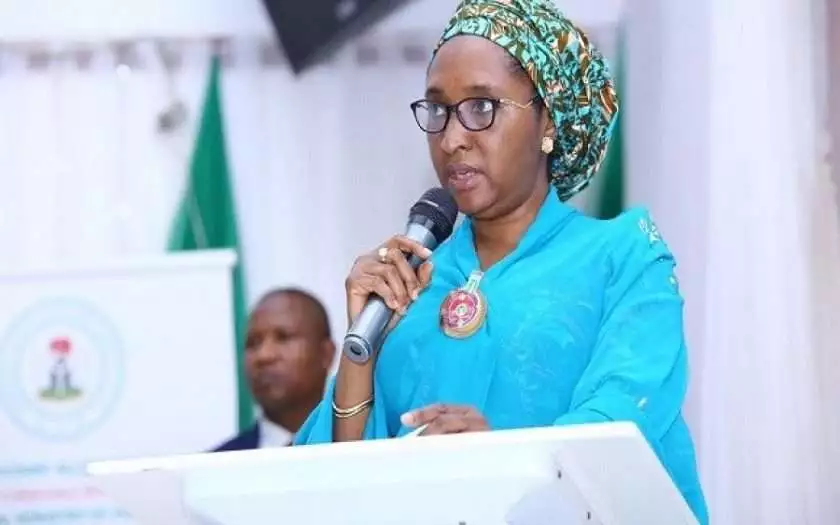The federal government will continue to borrow to finance critical projects, despite the spiralling debts level, the Minister of Finance, Budget & Planning,. Zainab Ahmed has said.
Ahmed disclosed this during the webinar organized by the Nigerian Economic Summit Group, Fiscal Policy Roundtable & Tax Investment & Competitiveness Policy Commission. She was represented by. Sarah Alade, the Special Adviser to the President on Finance & Economy.
She said, the Coronavirus pandemic and the slump in the price of crude oil have made it absolutely necessary to borrow.
The minister said Nigeria had faced a hard time ahead of the COVID 19,adding that the global pandemic only made things worst.
According to her We’ve had to grapple with low revenue, even before the pandemic. We had high debt, weak infrastructure base, low human capital and low revenue that is largely dependent on the foreign exchange earned from oil. So, there are many things we have loved to do that we cannot do.
Due to the global economic slowdown and the revenue issues, what we are expecting is a GDP that would contract, in the best case scenario, by about 4.4 per cent and in the worst case scenario, it could be about eight per cent or more.” She said.
Furthermore, it was disclosed that Nigerians risk losing about 21 million jobs as a result of the pandemic. Hence, there is a need to put things in place in order to ensure rise in revenue.”
She explained that government is desperately need to borrow to create jobs and refloat the economy.
She said “We are in a very difficult situation but we are trying to manage that because if nothing is done, up to about 21 million jobs could also be affected by the impact of the pandemic. So, with all these statistics, we cannot overemphasise the importance of raising revenue.”
The borrowed funds will be used to fund developmental projects across critical sectors.
The minister said “We also have the establishment of an N86bn intervention fund for health infrastructure; conversion of World Bank Regional disease surveillance system enhancement programme to support COVID-19 intervention in the states; accelerating infrastructural development; preparation of a Fiscal Stimulus Bill to provide legislative backing for the fiscal stimulus packages that we have; deregulation of the price of refined petroleum products – we know how important that is, given the amount of money that we spent in that area.
We also have the adoption of financing plan for the power sector recovery programme; incentivising the use of up to N2tn of pension funds for roads and housing development, supporting and encouraging states to achieve state fiscal transparency and accountability, sustainability and other World Bank programme actions in order to access external support and we are collaborating with state governments on affordable mass housing.”
No way out than to borrow, she said, insisting that the loans will be negotiated in favour of Nigeria.
“To achieve all these, we will have to keep mobilising external funding and seek debt relief. We continue to engage with the multilateral and donor agencies to access additional funding for crisis response, we seek moratorium from official partners for some of the loans that we have and support arrangement to secure commercial debt relief.” She said.
However, it was stated that had the revenue performed wonderfully well, there might be no need to secure foreign debt.
“If the revenue had performed, then we probably will not be seeking this much support from external sources, we know we cannot but keep working at generating more revenue so that the economy can be better for it.”
Nigeria’s local & foreign Debts stand at N33 trillion naira according to the Debt Management Office, DMO.
The national assembly has recently given the federal government the go ahead to borrow $27.5 billion.
Discover more from The Source
Subscribe to get the latest posts sent to your email.








